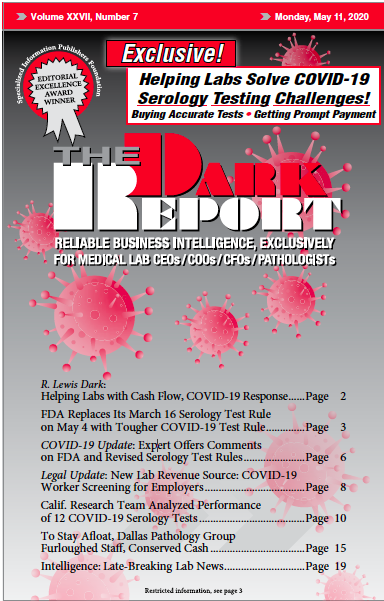CLINICAL LABORATORIES have a new revenue-generating opportunity, as some states relax stay-at-home rules: Many employers are likely to seek COVID-19 screening tests for employees returning to work to detect the presence of the new coronavirus. This new source of lab specimens and revenue gives clinical labs an opportunity to replace some revenue lost since early March. That is when routine daily specimen volume began to …
New Lab Revenue Source: COVID-19 Worker Screening Read More »
To access this post, you must purchase The Dark Report.


